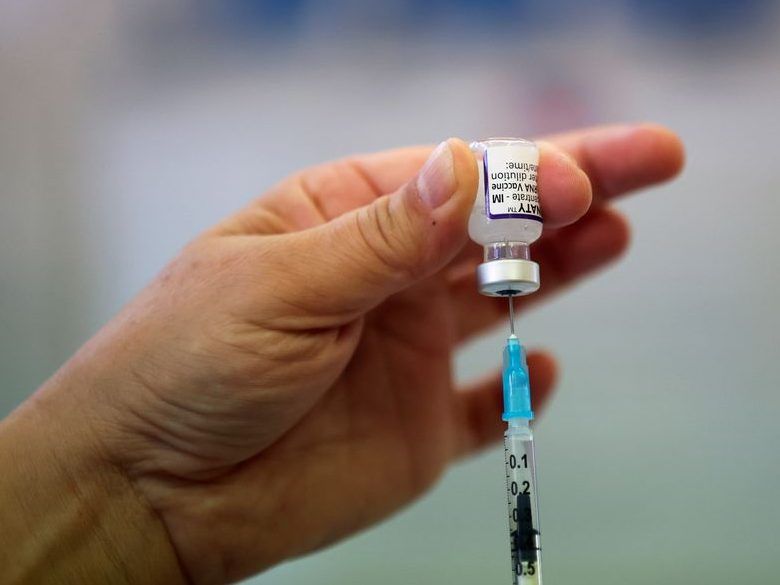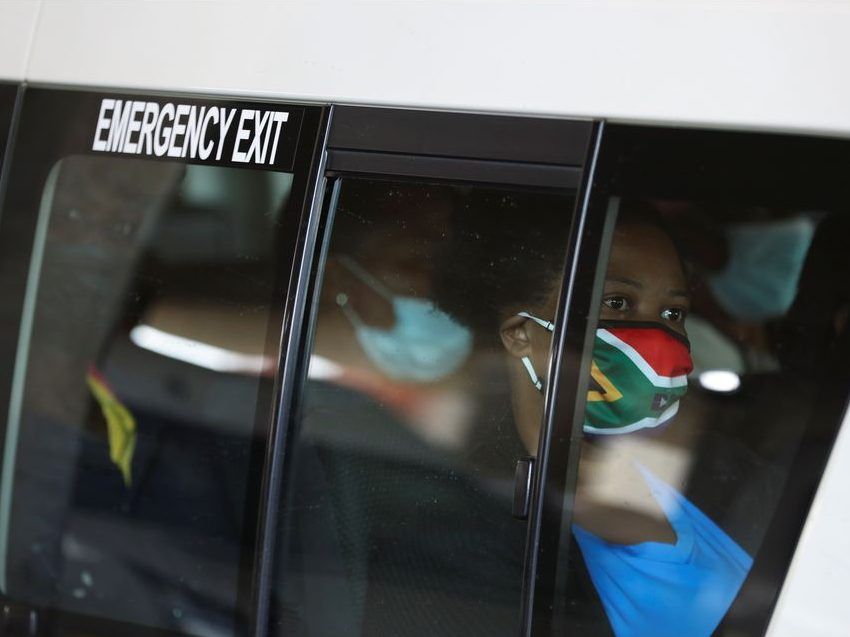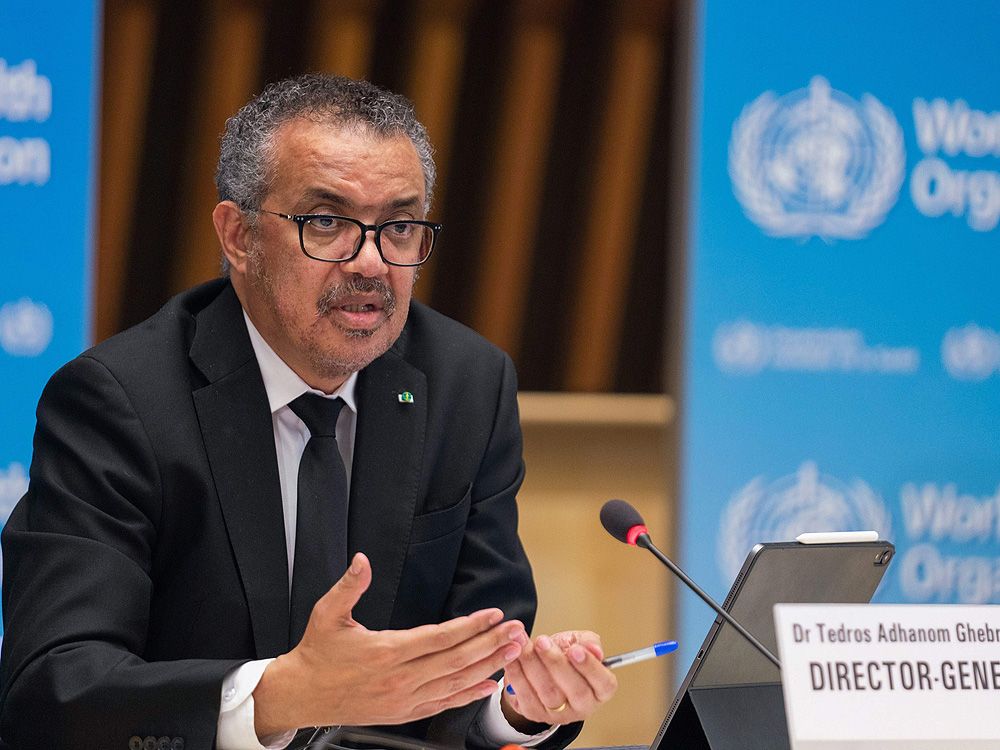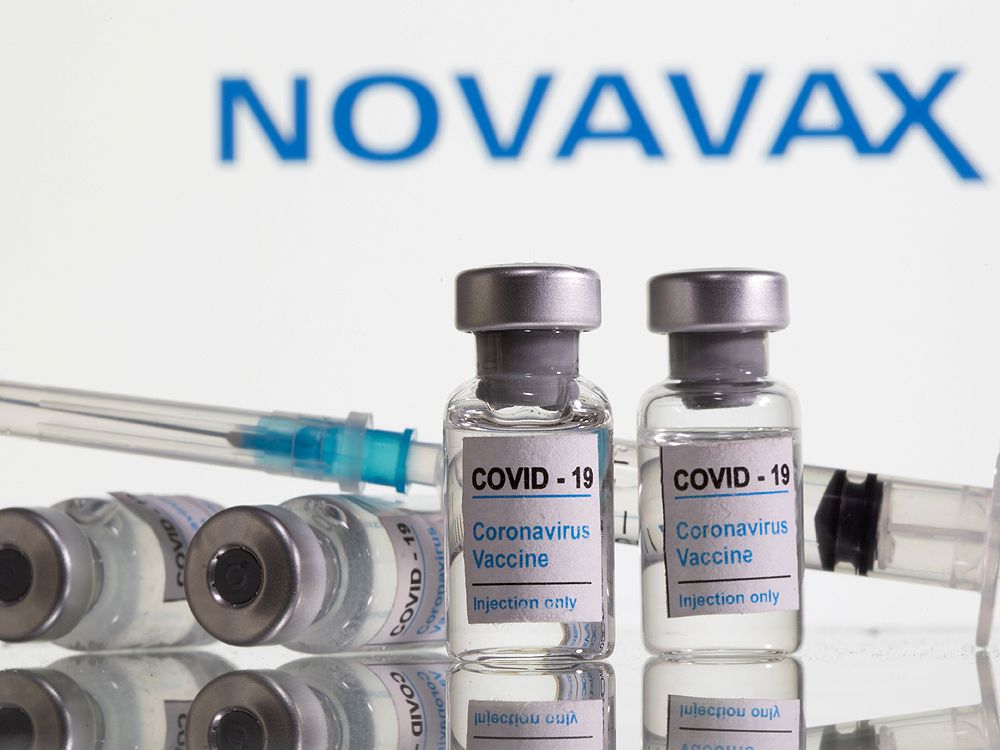COVID-19 'Pandemic'
- Thread starter Ocean Breeze
- Start date
You are using an out of date browser. It may not display this or other websites correctly.
You should upgrade or use an alternative browser.
You should upgrade or use an alternative browser.
There Are Now 365 Studies that Prove the Efficacy of Ivermectin and HCQ in Treating COVID-19 — Will Anyone Confront Fauci and The Medical Elites on Their Deception?
By Jim HoftPublished November 25, 2021 at 9:00am
270 Comments


Uh oh. The Botswana variant.
Save the giraffes!
All Four Botswana “Nu” Variant Patients Were Fully Vaccinated
By Jim HoftPublished November 26, 2021 at 9:45am
842 Comments
we can now officially ask the question, "what are you, 'nu'?"All Four Botswana “Nu” Variant Patients Were Fully Vaccinated
By Jim Hoft
Published November 26, 2021 at 9:45am
842 Comments
New COVID variant designated 'omicron,' triggers global alarm
Author of the article:Reuters
Reuters
Publishing date:Nov 26, 2021 • 12 hours ago • 4 minute read • 232 Comments
A health worker prepares a dose of the COVID-19 booster vaccine, amid the coronavirus disease (COVID-19) pandemic, at Midland House in Derby, Britain, September 20, 2021.
A health worker prepares a dose of the COVID-19 booster vaccine, amid the coronavirus disease (COVID-19) pandemic, at Midland House in Derby, Britain, September 20, 2021. PHOTO BY CARL RECINE /REUTERS
Article content
The discovery of a new coronavirus variant triggered global alarm on Friday as Europe rushed to suspend travel from southern Africa and stock markets on both sides of the Atlantic suffered their biggest falls in more than a year.
Advertisement
STORY CONTINUES BELOW
Article content
The World Health Organization (WHO) said it was designating the variant, named omicron, as being “of concern,” a label only given to four variants to date.
But it could take weeks for scientists to fully understand the variant’s mutations. Health authorities are seeking to determine if omicron is more transmissible or infectious than other variants and if vaccines are effective against it.
Hours after Britain banned flights from South Africa – where the new mutation was discovered – and neighbouring countries and asked travellers returning from there to quarantine, the European Union said it would also suspend travel.
South Africa’s Health Minister Joe Phaahla called the travel restrictions “unjustified,” though he also said preliminary studies suggested the new variant may be more transmissible
Advertisement
STORY CONTINUES BELOW
Article content
“This new variant of the COVID-19 virus is very worrying. It is the most heavily mutated version of the virus we have seen to date,” said Professor Lawrence Young, a virologist at Britain’s Warwick university.
“Some of the mutations that are similar to changes we’ve seen in other variants of concern are associated with enhanced transmissibility and with partial resistance to immunity induced by vaccination or natural infection.”
Those worries pummeled financial markets, especially stocks of airlines and others in the travel sector, and oil, which tumbled by about $10 a barrel.
Meanwhile, the scramble to ban air travel from southern Africa left hundreds of passengers on two KLM flights from Cape Town and Johannesburg stranded on the tarmac for hours at Amsterdam’s Schipol Airport before they were transferred for testing.
Advertisement
STORY CONTINUES BELOW
Article content
“Bus to a hall to a huge queue. I can see COVID testers in bright blue PPE far on the distance. Still no snacks for the sad babies,” tweeted New York Times journalist Stephanie Nolen, a passenger on the flight from Johannesburg.
‘MOST SIGNIFICANT VARIANT’
Several other countries including India, Japan and Israel also toughened travel curbs.
In Washington, top U.S. infectious disease official Anthony Fauci said no decision had been made on a possible U.S. travel ban. There was no indication that omicron was in the United States, and it was unclear whether it was resistant to current vaccines, he told CNN.
In Geneva the WHO – whose experts on Friday discussed the risks that the variant, called B.1.1.529, presents – warned against travel curbs for now.
Advertisement
STORY CONTINUES BELOW
Article content
“It’s really important that there are no knee-jerk responses here,” said the WHO’s emergencies director Mike Ryan, praising South Africa’s public health institutions for picking up the new variant of the coronavirus that causes COVID-19.
“Because we’ve seen in the past, the minute that there is any mention of any kind of variation, then everyone is closing borders and restricting travel.”
The variant has a spike protein that is dramatically different to the one in the original coronavirus that vaccines are based on, the UK Health Security Agency said, raising fears about how current vaccines will fare.
“As scientists have described, (this is) the most significant variant they’ve encountered to date,” British Transport Secretary Grant Shapps told Sky News.
Advertisement
STORY CONTINUES BELOW
Article content
On Wall Street the Dow Jones Industrial Average was down 2.5%, tracking its worst day since late October 2020, and European stocks had their worst day in 17 months as financial markets digested the news.
Cruise operators Carnival Corp, Royal Caribbean Cruises and Norwegian Cruise Line plunged more than 9% each, while shares in United Airlines, Delta Air Lines and American Airlines slumped almost 10%.
TOO LATE FOR TRAVEL CURBS?
The coronavirus has swept the world in the two years since it was first identified in central China, infecting almost 260 million people and killing 5.4 million.
One epidemiologist in Hong Kong said it may be too late to tighten travel curbs against the latest variant.
“Most likely this virus is already in other places. And so if we shut the door now, it’s going to be probably too late,” said Ben Cowling of the University of Hong Kong.
Advertisement
STORY CONTINUES BELOW
Article content
Belgium identified Europe’s first case, adding to those in Botswana, Israel and Hong Kong.
Brazilian health regulator Anvisa recommended that travel be restricted from some African countries, but President Jair Bolsonaro appeared to dismiss such measures.
Bolsonaro has been widely criticized by public health experts for his management of the pandemic, railing against lockdowns and choosing not to get vaccinated. Brazil has the world’s second-highest death toll from the virus, behind only the United States.
Discovery of the new variant comes as Europe and the United States enter winter, with more people gathering indoors in the run-up to Christmas, providing a breeding ground for infection.

 torontosun.com
torontosun.com
Author of the article:Reuters
Reuters
Publishing date:Nov 26, 2021 • 12 hours ago • 4 minute read • 232 Comments
A health worker prepares a dose of the COVID-19 booster vaccine, amid the coronavirus disease (COVID-19) pandemic, at Midland House in Derby, Britain, September 20, 2021.
A health worker prepares a dose of the COVID-19 booster vaccine, amid the coronavirus disease (COVID-19) pandemic, at Midland House in Derby, Britain, September 20, 2021. PHOTO BY CARL RECINE /REUTERS
Article content
The discovery of a new coronavirus variant triggered global alarm on Friday as Europe rushed to suspend travel from southern Africa and stock markets on both sides of the Atlantic suffered their biggest falls in more than a year.
Advertisement
STORY CONTINUES BELOW
Article content
The World Health Organization (WHO) said it was designating the variant, named omicron, as being “of concern,” a label only given to four variants to date.
But it could take weeks for scientists to fully understand the variant’s mutations. Health authorities are seeking to determine if omicron is more transmissible or infectious than other variants and if vaccines are effective against it.
Hours after Britain banned flights from South Africa – where the new mutation was discovered – and neighbouring countries and asked travellers returning from there to quarantine, the European Union said it would also suspend travel.
South Africa’s Health Minister Joe Phaahla called the travel restrictions “unjustified,” though he also said preliminary studies suggested the new variant may be more transmissible
Advertisement
STORY CONTINUES BELOW
Article content
“This new variant of the COVID-19 virus is very worrying. It is the most heavily mutated version of the virus we have seen to date,” said Professor Lawrence Young, a virologist at Britain’s Warwick university.
“Some of the mutations that are similar to changes we’ve seen in other variants of concern are associated with enhanced transmissibility and with partial resistance to immunity induced by vaccination or natural infection.”
Those worries pummeled financial markets, especially stocks of airlines and others in the travel sector, and oil, which tumbled by about $10 a barrel.
Meanwhile, the scramble to ban air travel from southern Africa left hundreds of passengers on two KLM flights from Cape Town and Johannesburg stranded on the tarmac for hours at Amsterdam’s Schipol Airport before they were transferred for testing.
Advertisement
STORY CONTINUES BELOW
Article content
“Bus to a hall to a huge queue. I can see COVID testers in bright blue PPE far on the distance. Still no snacks for the sad babies,” tweeted New York Times journalist Stephanie Nolen, a passenger on the flight from Johannesburg.
‘MOST SIGNIFICANT VARIANT’
Several other countries including India, Japan and Israel also toughened travel curbs.
In Washington, top U.S. infectious disease official Anthony Fauci said no decision had been made on a possible U.S. travel ban. There was no indication that omicron was in the United States, and it was unclear whether it was resistant to current vaccines, he told CNN.
In Geneva the WHO – whose experts on Friday discussed the risks that the variant, called B.1.1.529, presents – warned against travel curbs for now.
Advertisement
STORY CONTINUES BELOW
Article content
“It’s really important that there are no knee-jerk responses here,” said the WHO’s emergencies director Mike Ryan, praising South Africa’s public health institutions for picking up the new variant of the coronavirus that causes COVID-19.
“Because we’ve seen in the past, the minute that there is any mention of any kind of variation, then everyone is closing borders and restricting travel.”
The variant has a spike protein that is dramatically different to the one in the original coronavirus that vaccines are based on, the UK Health Security Agency said, raising fears about how current vaccines will fare.
“As scientists have described, (this is) the most significant variant they’ve encountered to date,” British Transport Secretary Grant Shapps told Sky News.
Advertisement
STORY CONTINUES BELOW
Article content
On Wall Street the Dow Jones Industrial Average was down 2.5%, tracking its worst day since late October 2020, and European stocks had their worst day in 17 months as financial markets digested the news.
Cruise operators Carnival Corp, Royal Caribbean Cruises and Norwegian Cruise Line plunged more than 9% each, while shares in United Airlines, Delta Air Lines and American Airlines slumped almost 10%.
TOO LATE FOR TRAVEL CURBS?
The coronavirus has swept the world in the two years since it was first identified in central China, infecting almost 260 million people and killing 5.4 million.
One epidemiologist in Hong Kong said it may be too late to tighten travel curbs against the latest variant.
“Most likely this virus is already in other places. And so if we shut the door now, it’s going to be probably too late,” said Ben Cowling of the University of Hong Kong.
Advertisement
STORY CONTINUES BELOW
Article content
Belgium identified Europe’s first case, adding to those in Botswana, Israel and Hong Kong.
Brazilian health regulator Anvisa recommended that travel be restricted from some African countries, but President Jair Bolsonaro appeared to dismiss such measures.
Bolsonaro has been widely criticized by public health experts for his management of the pandemic, railing against lockdowns and choosing not to get vaccinated. Brazil has the world’s second-highest death toll from the virus, behind only the United States.
Discovery of the new variant comes as Europe and the United States enter winter, with more people gathering indoors in the run-up to Christmas, providing a breeding ground for infection.

New COVID variant designated 'omicron,' triggers global alarm
The discovery of a new coronavirus variant triggered global alarm on Friday as Europe rushed to suspend travel from southern Africa and stock markets on both sides …
What we know about the new coronavirus variant in South Africa
Author of the article:Bloomberg News
Bloomberg News
Lisa Du and Prinesha Naidoo
Publishing date:Nov 26, 2021 • 12 hours ago • 3 minute read • 29 Comments
A passenger in a taxi wears a face mask with colours of the South African flag after the announcement of a British ban on flights from South Africa because of the detection of a new coronavirus disease (COVID-19) variant, in Soweto, South Africa, November 26, 2021.
A passenger in a taxi wears a face mask with colours of the South African flag after the announcement of a British ban on flights from South Africa because of the detection of a new coronavirus disease (COVID-19) variant, in Soweto, South Africa, November 26, 2021. PHOTO BY SIPHIWE SIBEKO /REUTERS
Article content
(Bloomberg) — A new variant of the coronavirus that causes Covid-19 — called B.1.1.529 — has been identified in South Africa, with officials there saying it’s highly concerning. Fears that a new strain could fuel outbreaks in many countries and pressure health systems, potentially evading vaccines and complicating efforts to reopen economies and borders sent a wave of risk aversion across global markets Friday. Governments around the world have started issuing bans on travellers from South Africa and nearby countries.
Advertisement
STORY CONTINUES BELOW
Article content
Here’s what we know so far:
1. What’s different about this variant?
Scientists say B.1.1.529 carries a high number of mutations in its spike protein, which plays a key role in the virus’ entry into cells in the body. It’s also what is targeted by vaccines. Researchers are still trying to determine whether it is more transmissible or more lethal than previous strains.
2. Where did it come from?
There’s only speculation so far. One scientist at the UCL Genetics Institute in London said it likely evolved during a chronic infection of an immuno-compromised person, possibly in an untreated HIV/AIDS patient. South Africa has 8.2 million people infected with HIV, the most in the world. The beta variant, a mutation identified last year in South Africa, also may have come from an HIV-infected person.
Advertisement
STORY CONTINUES BELOW
Article content
3. How widespread is it?
As of Thursday there were almost 100 cases detected in South Africa, where it’s become the dominant strain among new infections. Early PCR test results showed that 90% of 1,100 new cases reported Wednesday in the South African province that includes Johannesburg were caused by the new variant, according to Tulio de Oliveira, a bio-informatics professor who runs gene-sequencing institutions at two South African universities. In neighbouring Botswana, officials recorded four cases on Monday in people who were fully vaccinated. In Hong Kong, a traveller from South Africa was found to have the variant, and another case was identified in a person quarantined in a hotel room across the hall. Israel has also identified one case in a man who recently travelled to Malawi.
Advertisement
STORY CONTINUES BELOW
Article content
4. How have markets responded?
News of the new variant roiled financial markets Friday as stocks, treasury yields and oil sank — with travel-related stocks among the biggest decliners. The yen, typically seen as a safe haven asset, rose 0.6% against the dollar, while the South African rand slid to a one-year low. Equities in the U.S., which will resume trading after the Thanksgiving holiday, are set to open lower, with December contracts on the S&P 500 Index slumping 1.7%, the most since September. European stocks dropped the most since July.
5. How are other countries responding?
The U.K. issued a temporary ban on flights from six African countries, and others followed suit. Singapore is restricting entry for people who have been in South Africa and nearby nations within the last 14 days, while the European Union proposed halting air travel from southern Africa. Australia said it wouldn’t rule out tightening border rules for travellers from southern Africa if the situation escalates, while India stepped up screening of incoming travellers from South Africa, Botswana and Hong Kong.
Advertisement
STORY CONTINUES BELOW
Article content
6. How worrisome is this variant?
It’s too early to say. The World Health Organization said there are fewer than 100 whole genomic sequences of the new strain available, which could add to the time it takes to study how it compares to previous strains and its impact on Covid therapies and vaccines. Viruses mutate all the time, with the changes sometimes making the virus weaker or sometimes making it more adept at evading antibodies and infecting humans.
7. What should we look out for next?
The WHO has called a meeting on Friday to discuss B.1.1.529 and decide if it will be officially designated a variant of interest or concern. If it does, it will receive a Greek letter name under the WHO naming scheme, likely the letter “nu.” More details on how infectious and lethal the variant is should also come as researchers continue to look into data around B.1.1.529.

 torontosun.com
torontosun.com
Author of the article:Bloomberg News
Bloomberg News
Lisa Du and Prinesha Naidoo
Publishing date:Nov 26, 2021 • 12 hours ago • 3 minute read • 29 Comments
A passenger in a taxi wears a face mask with colours of the South African flag after the announcement of a British ban on flights from South Africa because of the detection of a new coronavirus disease (COVID-19) variant, in Soweto, South Africa, November 26, 2021.
A passenger in a taxi wears a face mask with colours of the South African flag after the announcement of a British ban on flights from South Africa because of the detection of a new coronavirus disease (COVID-19) variant, in Soweto, South Africa, November 26, 2021. PHOTO BY SIPHIWE SIBEKO /REUTERS
Article content
(Bloomberg) — A new variant of the coronavirus that causes Covid-19 — called B.1.1.529 — has been identified in South Africa, with officials there saying it’s highly concerning. Fears that a new strain could fuel outbreaks in many countries and pressure health systems, potentially evading vaccines and complicating efforts to reopen economies and borders sent a wave of risk aversion across global markets Friday. Governments around the world have started issuing bans on travellers from South Africa and nearby countries.
Advertisement
STORY CONTINUES BELOW
Article content
Here’s what we know so far:
1. What’s different about this variant?
Scientists say B.1.1.529 carries a high number of mutations in its spike protein, which plays a key role in the virus’ entry into cells in the body. It’s also what is targeted by vaccines. Researchers are still trying to determine whether it is more transmissible or more lethal than previous strains.
2. Where did it come from?
There’s only speculation so far. One scientist at the UCL Genetics Institute in London said it likely evolved during a chronic infection of an immuno-compromised person, possibly in an untreated HIV/AIDS patient. South Africa has 8.2 million people infected with HIV, the most in the world. The beta variant, a mutation identified last year in South Africa, also may have come from an HIV-infected person.
Advertisement
STORY CONTINUES BELOW
Article content
3. How widespread is it?
As of Thursday there were almost 100 cases detected in South Africa, where it’s become the dominant strain among new infections. Early PCR test results showed that 90% of 1,100 new cases reported Wednesday in the South African province that includes Johannesburg were caused by the new variant, according to Tulio de Oliveira, a bio-informatics professor who runs gene-sequencing institutions at two South African universities. In neighbouring Botswana, officials recorded four cases on Monday in people who were fully vaccinated. In Hong Kong, a traveller from South Africa was found to have the variant, and another case was identified in a person quarantined in a hotel room across the hall. Israel has also identified one case in a man who recently travelled to Malawi.
Advertisement
STORY CONTINUES BELOW
Article content
4. How have markets responded?
News of the new variant roiled financial markets Friday as stocks, treasury yields and oil sank — with travel-related stocks among the biggest decliners. The yen, typically seen as a safe haven asset, rose 0.6% against the dollar, while the South African rand slid to a one-year low. Equities in the U.S., which will resume trading after the Thanksgiving holiday, are set to open lower, with December contracts on the S&P 500 Index slumping 1.7%, the most since September. European stocks dropped the most since July.
5. How are other countries responding?
The U.K. issued a temporary ban on flights from six African countries, and others followed suit. Singapore is restricting entry for people who have been in South Africa and nearby nations within the last 14 days, while the European Union proposed halting air travel from southern Africa. Australia said it wouldn’t rule out tightening border rules for travellers from southern Africa if the situation escalates, while India stepped up screening of incoming travellers from South Africa, Botswana and Hong Kong.
Advertisement
STORY CONTINUES BELOW
Article content
6. How worrisome is this variant?
It’s too early to say. The World Health Organization said there are fewer than 100 whole genomic sequences of the new strain available, which could add to the time it takes to study how it compares to previous strains and its impact on Covid therapies and vaccines. Viruses mutate all the time, with the changes sometimes making the virus weaker or sometimes making it more adept at evading antibodies and infecting humans.
7. What should we look out for next?
The WHO has called a meeting on Friday to discuss B.1.1.529 and decide if it will be officially designated a variant of interest or concern. If it does, it will receive a Greek letter name under the WHO naming scheme, likely the letter “nu.” More details on how infectious and lethal the variant is should also come as researchers continue to look into data around B.1.1.529.

What we know about the new coronavirus variant in South Africa
(Bloomberg) — A new variant of the coronavirus that causes Covid-19 — called B.1.1.529 — has been identified in South Africa, with officials there saying it’s highl…
Head for the hills . We are all going to die . Again .What we know about the new coronavirus variant in South Africa
Author of the article:Bloomberg News
Bloomberg News
Lisa Du and Prinesha Naidoo
Publishing date:Nov 26, 2021 • 12 hours ago • 3 minute read • 29 Comments
A passenger in a taxi wears a face mask with colours of the South African flag after the announcement of a British ban on flights from South Africa because of the detection of a new coronavirus disease (COVID-19) variant, in Soweto, South Africa, November 26, 2021.
A passenger in a taxi wears a face mask with colours of the South African flag after the announcement of a British ban on flights from South Africa because of the detection of a new coronavirus disease (COVID-19) variant, in Soweto, South Africa, November 26, 2021. PHOTO BY SIPHIWE SIBEKO /REUTERS
Article content
(Bloomberg) — A new variant of the coronavirus that causes Covid-19 — called B.1.1.529 — has been identified in South Africa, with officials there saying it’s highly concerning. Fears that a new strain could fuel outbreaks in many countries and pressure health systems, potentially evading vaccines and complicating efforts to reopen economies and borders sent a wave of risk aversion across global markets Friday. Governments around the world have started issuing bans on travellers from South Africa and nearby countries.
Advertisement
STORY CONTINUES BELOW
Article content
Here’s what we know so far:
1. What’s different about this variant?
Scientists say B.1.1.529 carries a high number of mutations in its spike protein, which plays a key role in the virus’ entry into cells in the body. It’s also what is targeted by vaccines. Researchers are still trying to determine whether it is more transmissible or more lethal than previous strains.
2. Where did it come from?
There’s only speculation so far. One scientist at the UCL Genetics Institute in London said it likely evolved during a chronic infection of an immuno-compromised person, possibly in an untreated HIV/AIDS patient. South Africa has 8.2 million people infected with HIV, the most in the world. The beta variant, a mutation identified last year in South Africa, also may have come from an HIV-infected person.
Advertisement
STORY CONTINUES BELOW
Article content
3. How widespread is it?
As of Thursday there were almost 100 cases detected in South Africa, where it’s become the dominant strain among new infections. Early PCR test results showed that 90% of 1,100 new cases reported Wednesday in the South African province that includes Johannesburg were caused by the new variant, according to Tulio de Oliveira, a bio-informatics professor who runs gene-sequencing institutions at two South African universities. In neighbouring Botswana, officials recorded four cases on Monday in people who were fully vaccinated. In Hong Kong, a traveller from South Africa was found to have the variant, and another case was identified in a person quarantined in a hotel room across the hall. Israel has also identified one case in a man who recently travelled to Malawi.
Advertisement
STORY CONTINUES BELOW
Article content
4. How have markets responded?
News of the new variant roiled financial markets Friday as stocks, treasury yields and oil sank — with travel-related stocks among the biggest decliners. The yen, typically seen as a safe haven asset, rose 0.6% against the dollar, while the South African rand slid to a one-year low. Equities in the U.S., which will resume trading after the Thanksgiving holiday, are set to open lower, with December contracts on the S&P 500 Index slumping 1.7%, the most since September. European stocks dropped the most since July.
5. How are other countries responding?
The U.K. issued a temporary ban on flights from six African countries, and others followed suit. Singapore is restricting entry for people who have been in South Africa and nearby nations within the last 14 days, while the European Union proposed halting air travel from southern Africa. Australia said it wouldn’t rule out tightening border rules for travellers from southern Africa if the situation escalates, while India stepped up screening of incoming travellers from South Africa, Botswana and Hong Kong.
Advertisement
STORY CONTINUES BELOW
Article content
6. How worrisome is this variant?
It’s too early to say. The World Health Organization said there are fewer than 100 whole genomic sequences of the new strain available, which could add to the time it takes to study how it compares to previous strains and its impact on Covid therapies and vaccines. Viruses mutate all the time, with the changes sometimes making the virus weaker or sometimes making it more adept at evading antibodies and infecting humans.
7. What should we look out for next?
The WHO has called a meeting on Friday to discuss B.1.1.529 and decide if it will be officially designated a variant of interest or concern. If it does, it will receive a Greek letter name under the WHO naming scheme, likely the letter “nu.” More details on how infectious and lethal the variant is should also come as researchers continue to look into data around B.1.1.529.

What we know about the new coronavirus variant in South Africa
(Bloomberg) — A new variant of the coronavirus that causes Covid-19 — called B.1.1.529 — has been identified in South Africa, with officials there saying it’s highl…torontosun.com
you wont be laughing when them coloreds bring the variants here.Head for the hills . We are all going to die . Again .
It doesn’t effect the coloureds or the homeless for some reason .you wont be laughing when them coloreds bring the variants here.

Did WHO name new COVID variant Omicron to avoid upsetting China?
Author of the article:
Postmedia News
Publishing date:
Nov 27, 2021 • 12 hours ago • 1 minute read •
35 Comments
This handout picture taken and released on February 12, 2021 by World Health Organization (WHO) shows Director-General Tedros Adhanom Ghebreyesus delivering remarks during a press conference on February 12, 2021 in Geneva.
This handout picture taken and released on February 12, 2021 by World Health Organization (WHO) shows Director-General Tedros Adhanom Ghebreyesus delivering remarks during a press conference on February 12, 2021 in Geneva. Photo by CHRISTOPHER BLACK/World Health Organization /AFP via Getty Images
Article content
You say Xi or Nu? We say Omicron.
Advertisement
Story continues below
Article content
The Daily Mail is speculating the new COVID-19 South African variant skipped two letters of the Greek alphabet — namely Xi and Nu — and was named Omicron by the World Health Organization to avoid angering Beijing, specifically Chinese president Xi Jinping.
Up until now, the WHO has been using Greek letters such as Alpha, Beta and Delta to describe the variants.
However, there are allegations the president of China heavily influences WHO director-general Tedros Adhanom Ghebreyesus, a former Ethiopian minister whose country has benefited from Chinese investment.
Omicron has already been detected in South Africa, Botswana, Hong Kong, Israel and Belgium.
A WHO spokesman told the New York Post that it avoided Nu because it feared “people would think it was the new variant, rather than a name.”
As for Xi, they said: “And Xi because it’s a common surname and we have agreed (to) naming rules that avoid using place names, people’s names, animals, etc., to avoid stigma.”

 torontosun.com
torontosun.com
Author of the article:
Postmedia News
Publishing date:
Nov 27, 2021 • 12 hours ago • 1 minute read •
35 Comments
This handout picture taken and released on February 12, 2021 by World Health Organization (WHO) shows Director-General Tedros Adhanom Ghebreyesus delivering remarks during a press conference on February 12, 2021 in Geneva.
This handout picture taken and released on February 12, 2021 by World Health Organization (WHO) shows Director-General Tedros Adhanom Ghebreyesus delivering remarks during a press conference on February 12, 2021 in Geneva. Photo by CHRISTOPHER BLACK/World Health Organization /AFP via Getty Images
Article content
You say Xi or Nu? We say Omicron.
Advertisement
Story continues below
Article content
The Daily Mail is speculating the new COVID-19 South African variant skipped two letters of the Greek alphabet — namely Xi and Nu — and was named Omicron by the World Health Organization to avoid angering Beijing, specifically Chinese president Xi Jinping.
Up until now, the WHO has been using Greek letters such as Alpha, Beta and Delta to describe the variants.
However, there are allegations the president of China heavily influences WHO director-general Tedros Adhanom Ghebreyesus, a former Ethiopian minister whose country has benefited from Chinese investment.
Omicron has already been detected in South Africa, Botswana, Hong Kong, Israel and Belgium.
A WHO spokesman told the New York Post that it avoided Nu because it feared “people would think it was the new variant, rather than a name.”
As for Xi, they said: “And Xi because it’s a common surname and we have agreed (to) naming rules that avoid using place names, people’s names, animals, etc., to avoid stigma.”

Did WHO name new COVID variant Omicron to avoid upsetting China?
You say Xi or Nu? We say Omnicron.
Novavax developing vaccine that targets new COVID-19 variant
Author of the article:
Reuters
Reuters
Manojna Maddipatla and Mrinalika Roy
Publishing date:
Nov 26, 2021 • 1 day ago • 1 minute read •
Join the conversation
Vials labelled "COVID-19 Coronavirus Vaccine" and sryinge are seen in front of displayed Novavax logo in this illustration taken, February 9, 2021.
Vials labelled "COVID-19 Coronavirus Vaccine" and sryinge are seen in front of displayed Novavax logo in this illustration taken, February 9, 2021. Photo by Dado Ruvic/Illustration /REUTERS
Article content
Novavax Inc said on Friday it had started working on a version of its COVID-19 vaccine to target the variant detected in South Africa and would have the shot ready for testing and manufacturing in the next few weeks.
Advertisement
Story continues below
Article content
The company’s COVID-19 shot contains an actual version of the virus’ spike protein that cannot cause disease but can trigger the immune system. The vaccine developer said it had started developing a spike protein specifically based on the known genetic sequence of the variant, B.1.1.529.
“The initial work will take a few weeks,” a company spokesperson said. Shares of the company closed up nearly 9% on Friday.
Novavax’s vaccine received its first emergency use approval earlier this month in Indonesia followed by the Philippines.
The company has said it is on track to file for U.S. approval by the end of the year. It has also filed for approvals with the European Medicines Agency as well as in Canada.
Other vaccine developers, including Germany’s BioNTech SE and Johnson & Johnson, have said they are testing the effectiveness of their shots against the new variant, which is named Omicron by the World Health Organization.
Advertisement
Story continues below
Article content
Inovio Pharmaceuticals Inc said it had begun testing its vaccine candidate, INO-4800, to evaluate its effectiveness against the new variant. The company expects the testing to take about two weeks.
Inovio also said it was simultaneously designing a new vaccine candidate that specifically targeted Omicron.
“Best case scenario, INO-4800 … will be completely resilient against omicron, but if that’s not the case then we will have a newly designed vaccine ready to go if need be,” said Kate Broderick, senior vice president of Inovio’s R&D division.
Earlier this month, Inovio resumed a late-stage trial of its vaccine in the United States after 14 months on clinical hold.

 torontosun.com
torontosun.com
Author of the article:
Reuters
Reuters
Manojna Maddipatla and Mrinalika Roy
Publishing date:
Nov 26, 2021 • 1 day ago • 1 minute read •
Join the conversation
Vials labelled "COVID-19 Coronavirus Vaccine" and sryinge are seen in front of displayed Novavax logo in this illustration taken, February 9, 2021.
Vials labelled "COVID-19 Coronavirus Vaccine" and sryinge are seen in front of displayed Novavax logo in this illustration taken, February 9, 2021. Photo by Dado Ruvic/Illustration /REUTERS
Article content
Novavax Inc said on Friday it had started working on a version of its COVID-19 vaccine to target the variant detected in South Africa and would have the shot ready for testing and manufacturing in the next few weeks.
Advertisement
Story continues below
Article content
The company’s COVID-19 shot contains an actual version of the virus’ spike protein that cannot cause disease but can trigger the immune system. The vaccine developer said it had started developing a spike protein specifically based on the known genetic sequence of the variant, B.1.1.529.
“The initial work will take a few weeks,” a company spokesperson said. Shares of the company closed up nearly 9% on Friday.
Novavax’s vaccine received its first emergency use approval earlier this month in Indonesia followed by the Philippines.
The company has said it is on track to file for U.S. approval by the end of the year. It has also filed for approvals with the European Medicines Agency as well as in Canada.
Other vaccine developers, including Germany’s BioNTech SE and Johnson & Johnson, have said they are testing the effectiveness of their shots against the new variant, which is named Omicron by the World Health Organization.
Advertisement
Story continues below
Article content
Inovio Pharmaceuticals Inc said it had begun testing its vaccine candidate, INO-4800, to evaluate its effectiveness against the new variant. The company expects the testing to take about two weeks.
Inovio also said it was simultaneously designing a new vaccine candidate that specifically targeted Omicron.
“Best case scenario, INO-4800 … will be completely resilient against omicron, but if that’s not the case then we will have a newly designed vaccine ready to go if need be,” said Kate Broderick, senior vice president of Inovio’s R&D division.
Earlier this month, Inovio resumed a late-stage trial of its vaccine in the United States after 14 months on clinical hold.

Novavax developing vaccine that targets new COVID-19 variant
Novavax Inc said on Friday it had started working on a version of its COVID-19 vaccine to target the variant detected in South Africa and would have the shot ready …
Xi is also often rendered as "chi," and is an abbreviation for Christ, as in X-mas.Did WHO name new COVID variant Omicron to avoid upsetting China?
Author of the article:
Postmedia News
Publishing date:
Nov 27, 2021 • 12 hours ago • 1 minute read •
35 Comments
This handout picture taken and released on February 12, 2021 by World Health Organization (WHO) shows Director-General Tedros Adhanom Ghebreyesus delivering remarks during a press conference on February 12, 2021 in Geneva.
This handout picture taken and released on February 12, 2021 by World Health Organization (WHO) shows Director-General Tedros Adhanom Ghebreyesus delivering remarks during a press conference on February 12, 2021 in Geneva. Photo by CHRISTOPHER BLACK/World Health Organization /AFP via Getty Images
Article content
You say Xi or Nu? We say Omicron.
Advertisement
Story continues below
Article content
The Daily Mail is speculating the new COVID-19 South African variant skipped two letters of the Greek alphabet — namely Xi and Nu — and was named Omicron by the World Health Organization to avoid angering Beijing, specifically Chinese president Xi Jinping.
Up until now, the WHO has been using Greek letters such as Alpha, Beta and Delta to describe the variants.
However, there are allegations the president of China heavily influences WHO director-general Tedros Adhanom Ghebreyesus, a former Ethiopian minister whose country has benefited from Chinese investment.
Omicron has already been detected in South Africa, Botswana, Hong Kong, Israel and Belgium.
A WHO spokesman told the New York Post that it avoided Nu because it feared “people would think it was the new variant, rather than a name.”
As for Xi, they said: “And Xi because it’s a common surname and we have agreed (to) naming rules that avoid using place names, people’s names, animals, etc., to avoid stigma.”

Did WHO name new COVID variant Omicron to avoid upsetting China?
You say Xi or Nu? We say Omnicron.torontosun.com
I'd say WHO made the sensible decision not to feed the trolls.
Excellent way to get rid of parasites. Politicians should be fed a tablespoon a day.
Report: The Fully Vaccinated Account for 81% of the COVID Deaths in the UK
By Jim HoftPublished November 27, 2021 at 5:45pm
344 Comments
SHOCKING: BIG PHARMA Received Emergency Use Approval a Couple of Weeks Ago for COVID Variant Discovered a Couple Days Ago?
By Joe HoftPublished November 27, 2021 at 8:40am
907 Comments
South African Medical Association Debunks Global Hysteria – Says Omicron Variant Symptoms ‘Unusual But Mild’ – Even WHO Says No Reason to Panic
By Jim HoftPublished November 27, 2021 at 10:18pm
1110 Comments


